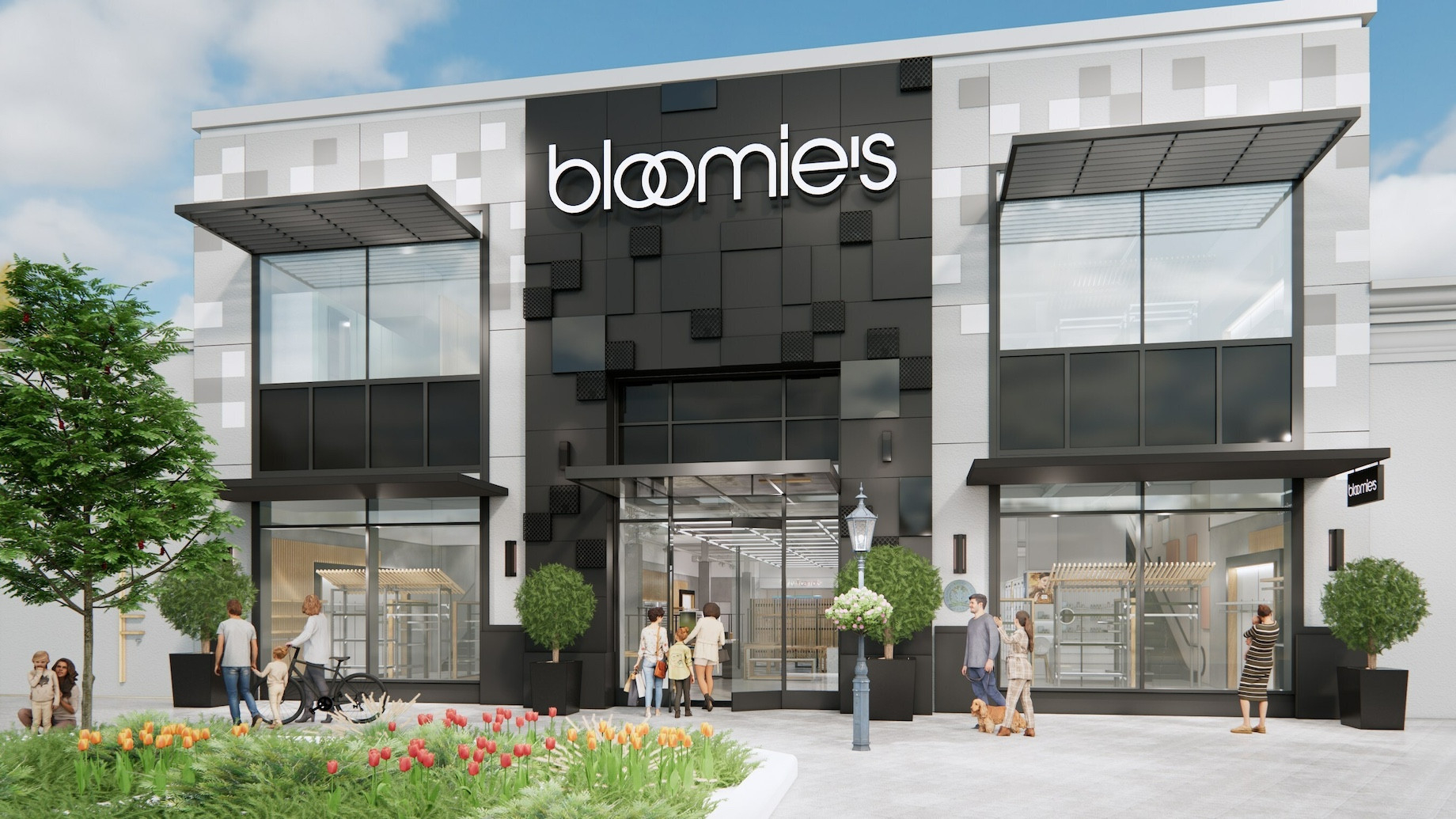Luxury Moves Beyond New York and California Urban Corridors
Physical stores are precious to luxury brands as they seek new customers and growing sales. Luxury brands opened 650,000 square feet of store space in the U.S. in 2022, the average unit totaling 5,000 square feet, according to JLL’s Luxury Report 2023. U.S. retail sales of luxury goods are expected to reach $75.6 billion this year, according to the report, which cites data from Statista. That’s a nearly 9% increase from last year’s $69.5 billion.
While luxury brands continued to favor prime urban shopping corridors last year, they also embraced malls, which accounted for 38% of luxury store openings in 2023, according to JLL. Malls like Los Angeles’ Westfield Topanga, Northern New Jersey’s American Dream and Arizona’s Scottsdale Fashion Square, pictured at top, have given a large portion of their space to luxury wings. The privately owned, luxury-focused Bal Harbour Shops in Florida already has fully leased a $500 million wing that won’t open until 2025.
Luxury retailers also continued to target New York and California, which accounted for more than half of all luxury store openings in 2022. Nonetheless, luxury brands were willing to grow outside the traditional coastal tourist cities. Sunbelt cities like Atlanta, Miami and Las Vegas accounted for a significant amount of the sector’s expansion.
Luxury consumers are turning away from department stores toward smaller, more curated experiences, according to JLL. Boutiques have emerged as a growing category within the luxury space, composing 12% of new luxury leases in the last year, according to the firm. Major players include Kith and The Webster. Kith opened a second location in its hometown of Brooklyn, as well as stores on Los Angeles’ Rodeo Drive and in Miami’s Design District. The Webster, which originated in Miami, opened four stores this year, in Atlanta; Austin; Palm Springs, California; and Hackensack, New Jersey.
More on Luxury Retail
September 2023: Make Room for Men’s Luxury
August 2023: Luxury Brands Double Down On Las Vegas
December 2022: Luxury Brands Hit Store-Expansion Mode
August 2022: Luxury Retailers Still Thriving
High-Net-Worthers Investing in CRE Debt
Retail investors and developers soon may find a deeper pool of funding available from high-net-worth investors. Wealth advisers are suggesting that their clients invest in commercial property debt as interest rates, slower markets and regulatory scrutiny prompt regional banks to reduce their lending. Commercial property debt “investors in newly underwritten deals benefit from more sizable equity cushions, better returns and enhanced downside protection,” according to a report from Bernstein Private Wealth Management called Silence the Noise: Seizing Opportunity in Commercial Real Estate Debt Today. Penta from Barron’s covered the report. Previously, commercial real estate debt offered returns of about 6% to 8%, but returns are likely to approach 11% for the next three to five years, according to the report. Wealthy investors are most likely to invest in commercial property debt through vehicles like debt funds and private credit, according to Bernstein, which suggested its income-oriented private wealth clients allocate about 7.5% of their portfolio to commercial property debt.
Bloomie’s, Macy’s, Goodwill, Boscov’s and Scheels in the News

Bloomie’s — the smaller, more curated concept of Bloomingdale’s — will open a third location on Nov. 2, in Seattle’s University Village. The 19,000 square-foot store will occupy two levels and joins locations in Fairfax, Virginia, and Skokie, Illinois. Macy’s Inc. subsidiary Bloomingdale’s has 55 stores.
And Macy’s Inc., in general will open as many as 30 smaller-scales stores in open-air centers from the beginning of 2024 through fall 2025. The stores offer a slimmed-down mix of merchandise and are one-fifth the size of traditional Macy’s mall stores. Macy’s has been testing the off-mall stores for four years via the Market by Macy’s concept, though small-format stores opened in 2023 and beyond will be known simply as Macy’s. Open-air center locations’ proximity to big-box stores, grocers and popular off-price retailers offer its shoppers more convenience and boosts sales, it said. Macy’s, a division of Macy’s Inc., has 507 stores.
Goodwill Industries of the Valleys, which serves 14 cities across Virginia, will spend $30 million to convert its Roanoke Jobs Campus into Melrose Plaza. A first-of-its-kind, full-service, Goodwill-operated supermarket called The Market on Melrose will anchor the project, which also will include a banking and financial services center, a wellness center and an adult high school. A local library branch will remain on-site. The project’s first phase will deliver by December 2024.
Family-owned department store Boscov’s will open its 50th location, a 150,000-square-foot store in Bridgeport, West Virginia, next week. It sits on the site of Meadowbrook Mall’s former Sears, Books-A-Million, Jo-Ann Fabrics and Marshalls among other tenants.
Employee-owned Scheels, an experiential sporting goods retailer, opened its first Arizona location, in a 250,000-square-foot former Nordstrom at Chandler Fashion Center. The store includes a 45-foot indoor Ferris wheel and a 16,000-gallon aquarium. Scheels has 33 stores in 14 states.
Brixmor Promotes 2: President and COO
Brixmor promoted Angela Aman from executive vice president and CFO, adding the position of president. The company also promoted Brian Finnegan from executive vice president and chief revenue officer to senior executive vice president and COO. Aman now will oversee Brixmor’s reinvestment efforts, and Finnegan will oversee construction and property management.
By Brannon Boswell
Executive Editor, Commerce + Communities Today